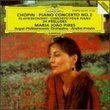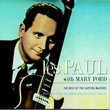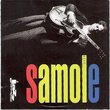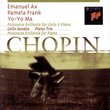| All Artists: Franz Liszt, Leslie Howard Title: Liszt: Complete Piano Music, Vol. 50 Members Wishing: 0 Total Copies: 0 Label: Hyperion UK Release Date: 6/9/1998 Album Type: Import Genre: Classical Styles: Chamber Music, Historical Periods, Classical (c.1770-1830) Number of Discs: 2 SwapaCD Credits: 2 UPC: 034571172316 |
Search - Franz Liszt, Leslie Howard :: Liszt: Complete Piano Music, Vol. 50
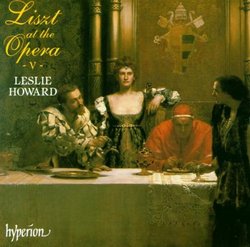 | Franz Liszt, Leslie Howard Liszt: Complete Piano Music, Vol. 50 Genre: Classical
|
Larger Image |
CD DetailsSimilar CDs
Similarly Requested CDs
|
CD ReviewsLiszt the Impresario - Part 5 Hexameron | 08/22/2006 (4 out of 5 stars) "Howard has excavated the depths of Liszt's output more than any other musician and has proven that the paraphrases/transcriptions are underrated and neglected pieces worthy of revival. With the pool nearly exhausted after four volumes, Howard turns to multiple versions, revisions, and drafts of Liszt's operatic fantasies/transcriptions already introduced in the previous "Liszt at the Opera" volumes. Therefore, this Hyperion release is essentially for the Liszt connoisseur.
The longer "first version" of the Reminiscences of Meyerbeer's "Les Huguenots" does not sound too different from the most typically-recorded final version. Indeed, Liszt's alterations may not be interesting to the casual listener. Similarly, the "second version" of the "La sonnambula" fantasy contains many subtle changes, but nothing too remarkable. Other revisited pieces include a few Wagner transcriptions, the "Tarantella di bravura" after Auber and the "first version" of the Reminiscences of Donizetti's "Lucrezia Borgia." Of course these are outstanding virtuoso pieces, but with the exception of tempi changes, additional bars, and other slight modifications, there is nothing immediately refreshing to the listener who has already encountered other versions of these works in the previous volumes. The first *new* piece presented in the series is the "Souvenir" on Auber's "La fiancee." This is an early work dating from 1829 and offers an extraordinary glimpse into the budding musical abilities of Liszt's youth. The music is totally charming and engaging, quite like the late-classical virtuoso pieces of Moscheles or Hummel. Another original work in the series is the amazing Reminiscences of Halevy's "La juive." Halevy is virtually unknown except to opera scholars, but Liszt makes a strong case for the opera composer with this dramatic and melodically wealthy tour-de-force. The second CD features only two new works to be explored in the series: the Fantasy on Pacini's "Niobe" and the transcription of Rossini's "William Tell" overture. These two are smashing hits. The "Niobe" fantasy was Liszt's warhorse and one he performed at the infamous Liszt/Thalberg duel in 1837. It is diabolical and ravishing; I cannot point to a more exciting specimen of 19th century Parisian virtuoso piano music. Steven Mayer recorded the fantasy on the "Liszt vs. Thalberg" disc (Liszt vs. Thalberg), but Howard's overall treatment, technique, and interpretation are much more gratifying. Liszt's transcription of Rossini's "William Tell" overture is simply breathtaking. Liszt transforms this already riveting epic overture into a thundering pianistic tone-poem. Somehow Liszt manages to capture the orchestral sonorities and density of texture while sustaining a clear melodic line and many nuances of phrasing. Certainly Howard's delivery is to be applauded: he plays it with all the needed endurance, dynamic control and virtuosity. But for those looking for a comparable rendition, I must mention Kemal Gekic's thrilling execution (Franz Liszt: Rossini Transcriptions). Bottom line: Although the series is not yet out of steam (a final Volume 6 has emerged: Liszt at the Opera: Operatic Fantasies, Paraphrases, and Transcriptions, Vol. VI (Complete Music for Solo Piano, Vol. 54)), it is clear that this particular Volume is not designed to appeal to the layman, but rather the Liszt aficionado. I knew full well that I would be purchasing this Hyperion release for only five new Liszt works. While the quality of these five make this disc essential for any Lisztian, be warned that the other tracks, namely the many alternate versions of operatic fantasies, do not offer much for those intimate with the "Liszt at the Opera" series and may sound like duplicates." |

 Track Listings (5) - Disc #1
Track Listings (5) - Disc #1


